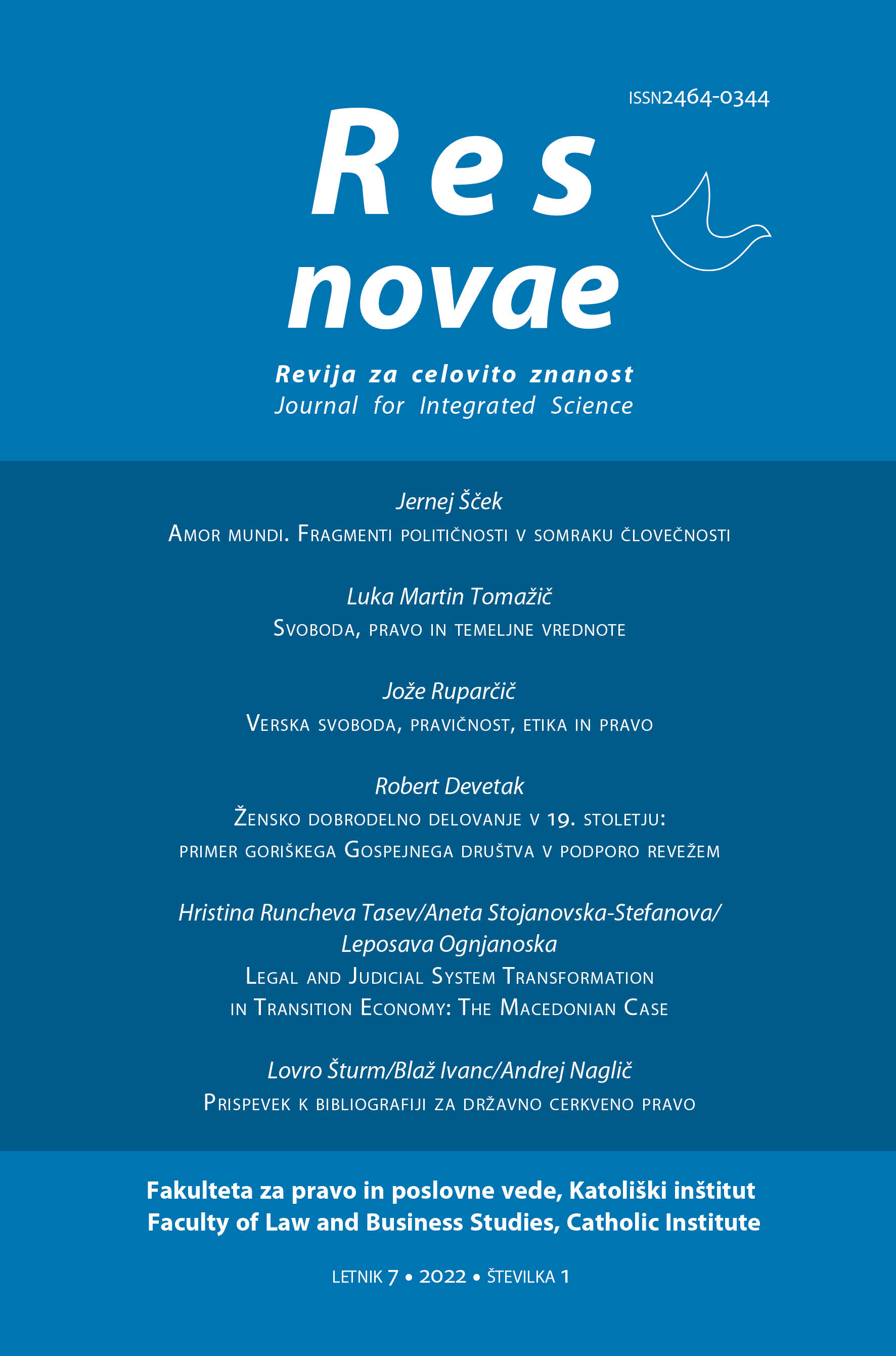Liberty, Law and Basic Goods
Luka Martin Tomažič
Liberty, Law and Basic Goods
DOI: https://doi.org/10.62983/rn2865.22a.2
Key words: liberty, law, public policy, basic goods, soft paternalism
Abstract:
How to ensure a free functioning of individuals, while at the same time enabling a just society, is an important societal question. The legislator or policy maker needs to decide, how and in what way to intervene in societal relationships, either coercively or by employing softer means. In this paper, a decision-making model of legislating and policymaking is proposed on a qualitative level, which aims at ensuring the Berlinian ideal of negative liberty, while at the same time considering the occasional need to encourage good options. To understand what good options are, an orientation towards preservation or promotion of basic goods is proposed. These are, according to Finnis, life, knowledge, friendship, religion, play, aesthetic experience, and practical reasonableness. They are weighed according to the regulative ideal of justice. When possible, the policy maker should avoid using legislation, which is the ultimate means of regulation of societal relationships. Soft paternalist policies should be given priority instead.
PDF



